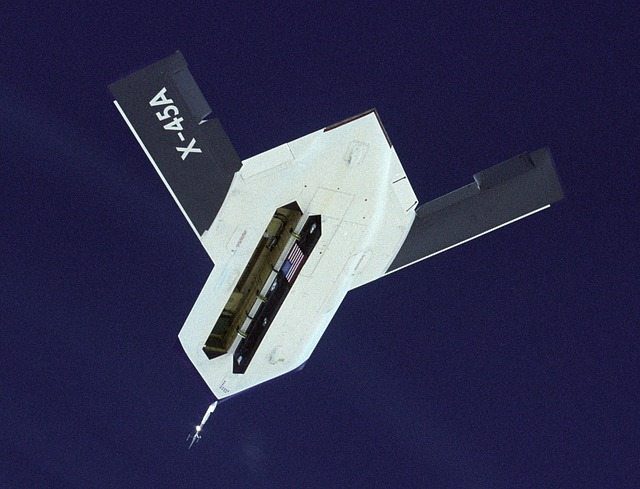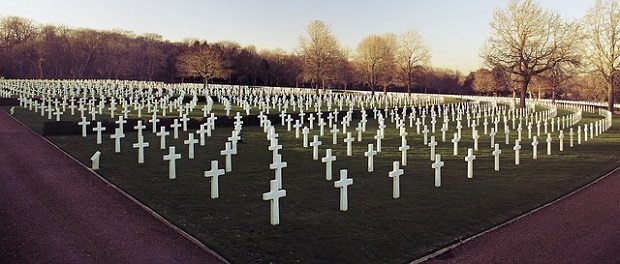[dropcap style=”font-size:100px; color:#992211;”]N[/dropcap]orman B interviews Hugh Gusterson, Professor of Cultural Studies and Anthropology at George Mason University.
Norman B: An anthropologist’s take on war? Why do we have wars?
Hugh Gusterson: Well, I think the most important thing I can say as an anthropologist, lots of people assume that there’s a sort of human instinct for war… and I think if there’s one thing we can take away from this conversation it’s the distinction between violence, which is an instinct which all human beings carry, and war which is a social institution that we’ve created over history.
There have been some human groups in other parts of the world that never even had a word for war in their vocabulary. I just want to emphasize, that war is not biologically ingrained, it is an institution that we’ve created over time. And societies that have institutionalized war, have tended to wipe out other societies that don’t have a word for war, that aren’t prepared to fight wars.
So one of the reasons we’ve had wars, is that societies that are prepared to fight wars tend to prosper at the expense of ones that aren’t. We fight over many things: we fight over resources, it’s no coincidence that many of the recent wars in the world have been in the Middle East, where lots of countries have an interest in the oil that’s there. Or this terrible civil war in the Congo, right now, and one of the reasons for that is that the Congo is one of only two places in the world that
produce this very rare mineral that goes in all our cell phones. The name escapes me.
NB: Tantalum?
HG: Yes, I believe it is…
NB: You have answered my first question succinctly. This is something we don’t address; we talk about war, we glorify the whole idea of the military, yet we seem to be scared of facing the facts about war. So war is learnt behavior. There does seem to be a glorification of war, the romantic idea of going to war. Can you talk about that?
HG: I think an important part of war, is the nobility of sacrifice. Many people who fought in wars, will say they never felt more generous to their comrades, where people are willing to lay down their lives for other people. There’s a strong sense of male intimacy that soldiers experience. So its sort of a paradox that war is made for the people who initiate it, be it about grabbing something that belongs to someone else… but, war can also be undertaken for very noble reasons.
We are having the discussion about whether to get involved in Syria. A large part of the motivation for doing that, would be a sense of outrage about the way the regime in Syria was treating some of its opponents. They are dropping bombs and poison gas on civilians, so part of the complexity of war is that it’s fought for base motives and for very noble motives.
NB: Do soldiers, no matter where they are, share a camaraderie? You mentioned intimacy. This can be any nation, any religion…correct?
HG: Yes, yes, there’s an article that I love to teach undergraduates by William Broyles, who is a Vietnam vet, he published it in Esquire magazine, many years ago. It’s called, ‘Why Men Love War’. He argues that as a vet, he experienced an intimacy with the men he fought with, that men don’t even experience with their wives and their family members in many ways. You see terrible and spectacular things that are just not normal to see and you share that. Very intense experiences with other men, you go to the edge of death and back.
Even if you haven’t fought in the same war, I think there’s some bond that veterans share with each other that they don’t share with people who haven’t been in war. You see it in America, where veterans who fought in World War 1, World War 2, Vietnam or Iraq feel a bond with each other, even though they weren’t on the same battlefield. And, I think even veterans from different countries can feel a special bond with each other.
NB: What have we learnt, if anything, from centuries of war?
HG: I think each generation learns things, but it’s hard to transmit that knowledge across generations. As someone who has spent the last twenty years studying war, one obvious lesson is that the technologies used to fight war are evolving in two ways, they are becoming more and more destructive. We’ve gone from bows and arrows to rifles to hand grenades and land mines, and now to atomic bombs that can wipe out entire cities. The other thing is that the technologies allow people to kill each other at greater and greater distance.
As an anthropologist I find that very worrying. There should be a proper intimacy to the act of killing an enemy. It imbues the act with a degree of awe and respect… if someone in a pod in Nevada can press a button and three or four seconds later someone in Yemen or Pakistan dies from a missile launch by a drone, I think that is very worrying, the antiseptic nature of that. And the possibility that we can kill without conscience.
There’s an interesting study that was done during World War Two showing that maybe as many as a quarter of the American army troops never fired their rifles. There was this inhibition against killing someone you could see and it was very difficult to get people past that. Its much easier to get a bombardier to drop a bomb from thirty-thousand feet than to get someone to shoot another person they can see in their rifle scope. With this evolution of the technology, the killing becomes more and more distant and antiseptic. It is, I think, something that should worry us all, because if killing becomes easy, then the casualties will go up.
The other thing that strikes me, looking at the vast sweep of human conflict, is the way it goes in peaks and troughs. It’s easy to think that war is inherent to either human nature or the social system, but there have been vast periods of peace. We often think of Europe as a continent that was extremely violent and bloody, because two world wars originated there in the 20th century. But if you look at 19th century Europe, after the Napoleonic wars, Europe was mainly peaceful for a century.
There are times when systems seem to be prone to fighting wars and conflict and there are times when they aren’t. Look at a continent like Latin America, there have been a number of internal wars, where elites have fought very vicious wars against peasant insurrection. But none of the classic wars where you think of, where one country invades another country. Or you look at a country like Switzerland, which has been at peace for over a hundred years.
So what strikes me is the variability of the system. Some countries manage to stay out of trouble, other countries are constantly getting into trouble. The kind of wars that are fought vary over time, in different parts of the international system.
NB: Are there winners in war?
HG: There are, but who they are is very complicated. There is the issue of the short term versus the long term. Saddam Hussein might have thought after the first Gulf war that he had come out pretty unscathed, but by the time he had been found in his spider hole after the 2nd Gulf war, then hung, he didn’t look like much of a winner or a survivor after all.
There is a quote from Zhou Enlai, who served under Mao Zedong, who was asked what the consequences of the French Revolution were and answered that it was ‘too early to tell’. So there is this issue of the short and the long term. Sometimes the winners can be very unexpected. If you look at the most recent war in Iraq, it seems to be clear to me, the US didn’t win it. The winner of that war is a country that didn’t even fight in it… Iran.
NB: Again, from an anthropologist’s point of view, what really was going on with Saddam Hussein and his regime? Was this a classic dictatorship or was there something else, was there something we didn’t understand? Can you explain?
HG: Saddam Hussein was a much more ambiguous character than we allow, by the time we decided to go to war with him, we had painted him as a simple despot. Someone trying to acquire weapons of mass destruction, even though it turned out that he no longer was… and someone possibly in league with Al Qaeda.
If you go back earlier in Saddam Hussein’s career, it turns out he was a secularist, he did not like the kind of Islam that Al Qaeda represented. In the early part of his career, ruling Iraq, he had actually created a very secular, somewhat socialist country that sent a fairly high proportion of its population to university. The universities were thought of as among the very best in the Middle East. They were not Islamist universities, they were secular universities. Iraqi women did not wear veils, lots of Iraqi women went to university. So in terms of the values the US stands for, you might have thought Saddam Hussein’s regime mirrored some of those values, because he was committed by Islamic standards to women’s liberation, education, building a strong middle class, de-emphasizing Islam and so on.
At the same time he was a very vicious dictator who ran a one party state and anyone who dared cross him was either thrown in jail and tortured, or killed in very brutal ways. So that’s the ambiguity of Saddam Hussein.
NB: Do we understand the workings of a dictator like Saddam Hussein? Is it simple pure brutal force that allows a dictator to exist?
HG: Well, Saddam Hussein became very powerful because he
was sitting on a very valuable asset… oil. He was on top of one of the largest oil reservoirs in the world and he could use the revenue to build a very large military, to reward sectors of the population so they would support his continued rule. If you want to build a powerful regime, having lots of monitory resources always helps.
Until he crossed the US, he had a very powerful benefactor. The US built up his military and used it to counterbalance the Iranian military. So he had two enormous assets, one was US assistance, until 1990, and the other was a lot of oil revenue.
NB: So how do you evaluate the invasion of Iraq? Was that a war in the true sense?
HG: The journalist Tom Ricks has a wonderful book, called Fiasco, about the Iraq war. He argues that we should see it in two stages: the shorter stage, which the US media tended to focus on the most, was the invasion, which was sort of a cakewalk. You remember Bush was on the aircraft carrier with the banner that said, ‘Mission Accomplished’, he thought the war had ended? But actually it was moving into the second phase, which was the insurgency, which the US pretty much lost.
Despite all the fairy tales we are told about the surge having worked and so on. If you look at Iraq today, the level of violence there is extraordinary, the US military has been unceremoniously booted out of Iraq. So if we fought that war to turn Iraq into a client state, we lost that. It has become a client state of Iran instead. Saddam Hussein had been very hostile to the Iranian regime. He’s been removed and so it’s been a wonderful development for the Iranians, although it’s been terrible for the Iraqi people. Maybe as many as a million Iraqi people have died. There is this slow motion campaign of ethnic cleansing, there are car bombs going off pretty much every day as Sunni and Shiite fight this slow motion civil war. I don’t think you can say that many Iraqis are the winners.
Within the US, the veterans who fought the war have extremely high levels of suicide, PTSD, homelessness, drug addiction, and alcoholism problems, so many of the veterans have not come out terribly well. The companies that made the military hardware for the war saw their stock prices go up and made enormous amounts of revenue, so I guess you can say they were winners.
NB: We hear the word terrorism all the time. The catchphrase is, ‘fighting the war on terror’. Are we at war against terrorists? Is fighting terrorism war?
HG: Terrorism is a tactic. You usually fight war against a constituent. It’s hard to fight a war against a tactic. Terrorism tends to be used asymmetrically by the weak. So people who feel they can’t fight you out in the open on the battlefield do things like hijacking planes and flying them into skyscrapers. I don’t know that you can fight a war against terrorism in the way that you can fight a war against Al Qaeda, but I think, increasingly, we are in a world where the US will find itself in struggles with communities who use terrorism as a tactic, partly because they feel, if they try to fight the US as equals on the battlefield, they’d stand no chance whatsoever.
There is a fundamental ambiguity about whether you deal with terrorists as criminals or combatants. I grew up in Britain when the IRA was letting off bombs around London where I lived and there was always this question. The IRA claimed when they were captured that they were prisoners of war and that they should be treated as prisoners of war. Margret Thatcher absolutely refused to do that, she said they were criminals and she insisted imprisoning them as criminals.
It’s interesting, the Bush administration flipped that, they did the reverse. They insisted these people were enemy combatants and refused them the rights they might have had if they had been criminal defendants.
NB: Is there a right or a wrong in those two assessments?
HG: I think terrorism is so ambiguous that you construct the people who engage in it in either direction. You may have to look at individual instances.
NB: So, the most recent acts of terrorism in France or in the US that have shocked and gripped the world… are these caused by soldiers of war or criminals?
HG: To me, when I think of soldiers, I think of people who are under someone else’s command. So the people who attacked the World Trade Center, they were terrorists, clearly. They seem to me more like soldiers, because they had been trained in another country by an organization that meant the US harm. And they were directed in their attack that day by people above them.
The young men in Boston for instance, were sort of freelancers, so I don’t know that I think of them as combatants. Every time there is yet another of these terrible events the US media immediately asks was it terrorism, and it’s as if it’s only terrorism if it was directed by some shadowy foreign organization. To me that’s a military form of terrorism, but every time someone goes crazy with a gun in a shopping mall, even if they’re a lone gunman who is mentally disturbed who decided to do this on their own… it is an act of terror. It is specifically intended to sow terror.
NB: You mentioned drones earlier. People disengaged from hand to hand combat. Pressing a button and killing goodness knows how many people, thousands of miles away. In the future will we consider soldiers who engage in this kind of warfare, will they also be regarded as veterans, in the same way we think of veterans today?
HG: I think we are still n the middle of trying to figure this out. People in the air force laughingly deride the drone operators as the “chair force”. On the other hand, there are quite high rates of PTSD among drone operators. It may be if you kill someone in the middle of the day, then go home and have dinner with the wife and kids afterwards, the lack of a clear distinction between the battlefield and your family life is sort of traumatizing. It’s very hard to navigate that psychologically.
Some people have suggested that the video imagery that you see in the aftermath of a strike can be disturbing as well. It is clear that drone operators have their own psychological suffering. A symptom of the confusion is that the Pentagon, a year or so ago, created a special medal that they gave drone operators. Then there was an outcry within the military, then they redrew it. So I think we are still trying to decide what sort of stars those people have. Are they combatants or not? What does combat mean?
Joker illustration by Dan Booth. Not to be reproduced without express prior permission.



















